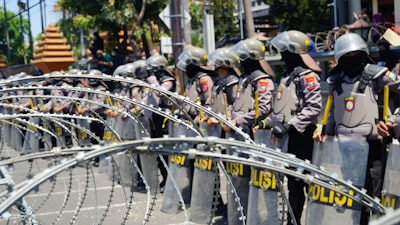Summary
Thailand’s Deputy Prime Minister and Defence Minister, Phumtham Wechayachai, has publicly ruled out the likelihood of a military coup, affirming that the nation’s top generals remain committed to democracy amid public protests and political turbulence. This statement comes in the wake of rallies led by the Uniting the Power of the Land for the Defence of Thai Sovereignty group, calling for military intervention. Phumtham also addressed issues ranging from the formation of a new Cabinet to the waning popularity of Prime Minister Paetongtarn Shinawatra, while cautioning protest leaders against revisiting disruptive practices and advising restraint in speculating over ongoing legal proceedings against top politicians.
Analysis
Phumtham’s reassurances reflect a recurring theme in Thai politics: the uneasy dance between military power and civilian rule. By invoking the generals’ unity and commitment to democracy, he seeks to quell anxieties rooted in Thailand's turbulent political history, which includes multiple coups over the past decades. Yet, the mere necessity of such explicit denials illustrates the fragility of democratic norms and underlying distrust between society and the military. The return of figures like Sondhi Limthongkul, and calls for the army to "step in" from political activists, highlight both lingering dissatisfaction with technocratic or populist governance and the still-potent shadow of extra-parliamentary power. Meanwhile, wavering public support for the Prime Minister underscores the volatility and uncertainty lurking just beneath the surface.
Notably, Phumtham frames proposed disruptions to the political-legal system as unhelpful, revealing the administration’s intent to privilege incremental, system-bound change over street-level activism or radical reform. The mention of ongoing legal cases against protest leaders alludes both to the government’s willingness to pursue judicial remedies and a possible attempt to deter future direct action. Yet, he downplays the protests’ significance—raising questions about whether discontent is being underestimated, or deliberately minimized to avoid giving momentum to opposition forces.
Discussion
Why does this matter? Thailand’s response to civic unrest sets precedents for how fragile democracies throughout Southeast Asia manage dissent, mediating between military intervention, legal action, and political compromise. The pattern of protests, legal battles, and coup speculation has defined the country’s trajectory for two decades—yet each iteration raises the stakes, as grievances simmer and international scrutiny mounts. Is the military’s hands-off approach a sign of deeper institutional reform, or merely a temporary posture until new opportunities arise? What role will the judiciary play as political actors seek legal channels to challenge one another?
Trust is a key currency in Thailand’s political marketplace, and Phumtham’s statement seeks to reassure both domestic and foreign observers that the country’s armed forces will not become kingmakers once more. But trust, once eroded, is not easily restored. The specter of legal proceedings against activists and leaders alike suggests that the battle for legitimacy is far from over. In a region marked by democratic backsliding and periodic military interventions, Thailand’s course will have broad resonance—including for young citizens who view participatory politics as essential.
In sum, while the immediate threat of military intervention seems contained, the deeper questions about the military’s role, judicial independence, and the resilience of Thailand’s democratic experiment remain unsettled. How these dynamics play out will affect not only Thai society but also broader narratives about the strengths and weaknesses of Southeast Asian democracy.

Comments
No comments yet. Be the first to comment!